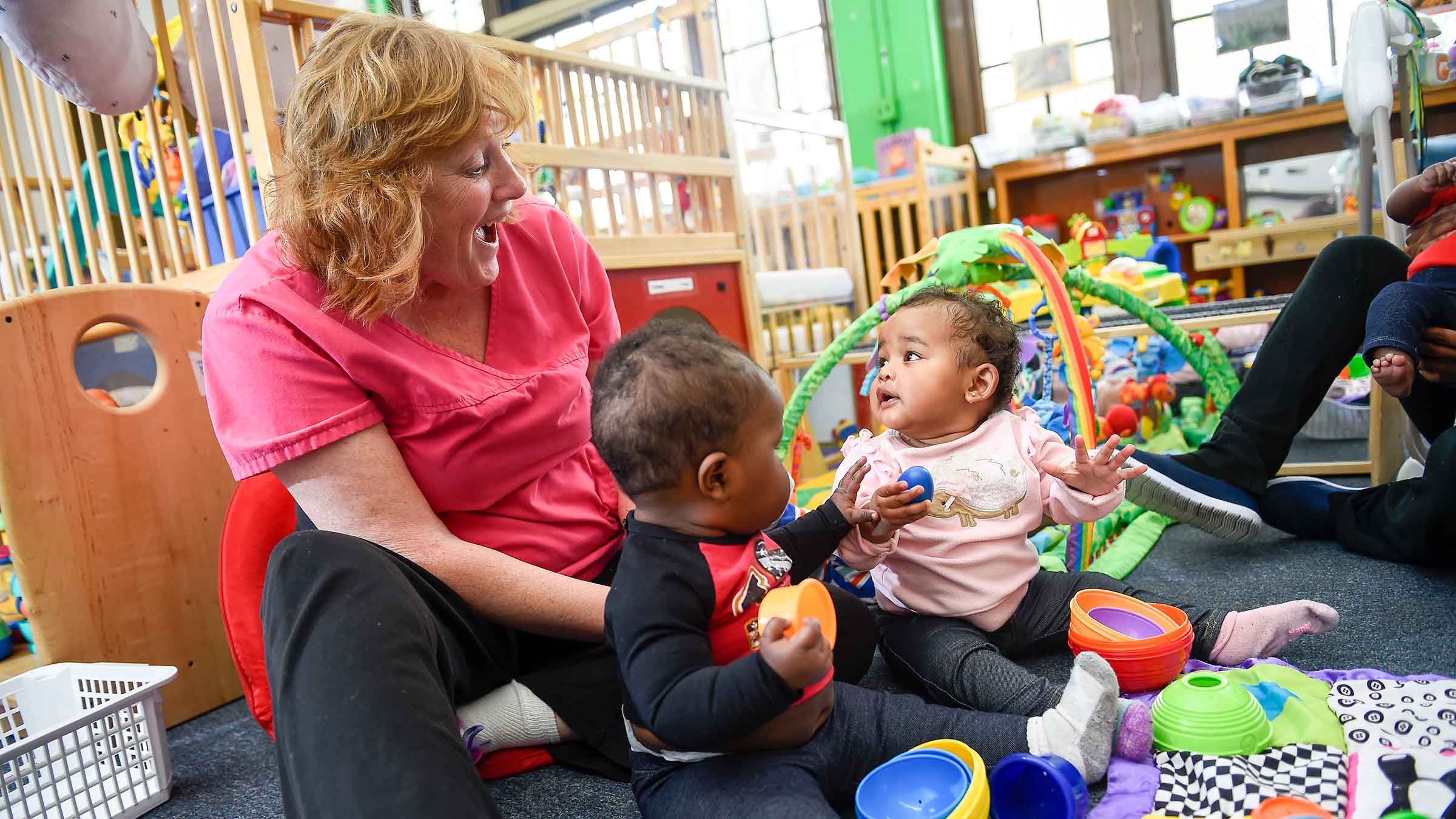
Today, I’m proud to share more details about the first organizations funded through our new innovation initiative, 80x3: Resilient from the Start.
80x3 is a five-year, region-wide initiative to increase the capacity of the early childhood sector to deliver trauma-sensitive care through healing-centered engagement for children and families.
80x3 gets its name from research indicating that eighty percent of brain development occurs by age three. Healthy brain development is proven to provide a foundation for better outcomes through the whole course of a person’s life, including health, educational success and economic security. Children exposed to traumatic life events without the buffering, positive support of a caring adult are at significant risk of experiencing negative outcomes across multiple areas of development.
“Adverse childhood experiences become trauma when the harm is not healed, and this can have lifelong negative effects,” says Lucy Arias, Preschool Development Grant Tribal Lead for the Minnesota Department of Education, and a member of the 80x3 Advisory Board. “Children, families and communities need time to heal, and heal together.”
It is critically important that early childhood caregivers are empowered with skills to better understand the effects of traumatic events, so they can be more fully equipped to support children experiencing stress.
When these skills are not present in educators, challenging behavioral patterns in a child may be seen as purely disruptive and too hard to handle. Psychiatrist and childhood trauma scholar Bruce D. Perry notes that early childhood education settings result in more expulsions from pre-K than at any other level of education, disproportionately impacting children of color at three times the rate of white children.
Caregivers who understand what a stress response looks like and who have the tools to effectively respond to their own and to a child’s stress response, are better equipped to support children’s wellbeing, helping children grow into thriving adults.
For educators, understanding a child’s behavioral patterns often requires reflection with a coach, mentor or supervisor who has experience supporting children to work through difficult or unfamiliar emotions. Additionally, it requires professional development that gives the educator new ways to promote restorative practices and support a child’s emotional and physical safety. Furthermore, it is essential that caregivers are also cared for in a meaningful way, so that they too can regulate their own emotional responses.
The behavior of caregivers acts as a mirror for children to learn self-soothing techniques that can calm their minds and bodies. Applying restorative practices allows caregivers to model these skills for children after an intense emotional response.
This month, we take on this challenge with the launch of the 80x3 initiative. In addition to our nine community partners throughout Minneapolis and St. Paul, we have assembled an advisory group of external stakeholders and contracted with experts prepared to support the cohort though a year of community building, professional development, and individualized organizational change management.
Through all of these partnerships, we aim to create a region dedicated to providing trauma-sensitive care through healing-centered engagement – a “whole person in community” approach that recognizes the strengths and cultural assets of each child and caregiver.
Together, we will ensure that all child-serving organizations have the skills and resources they need to create places where children and families can heal.